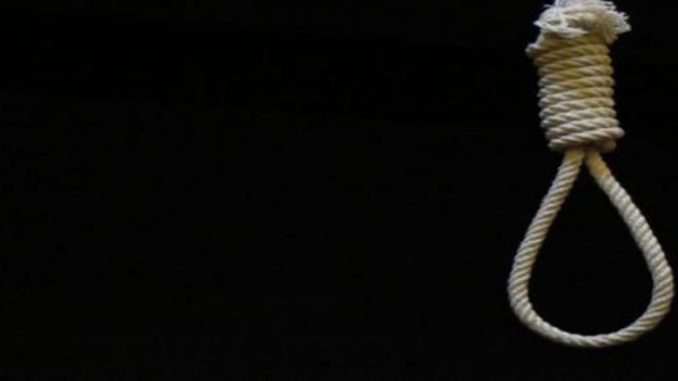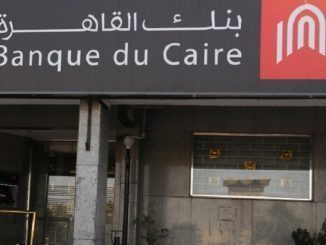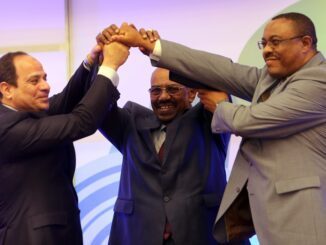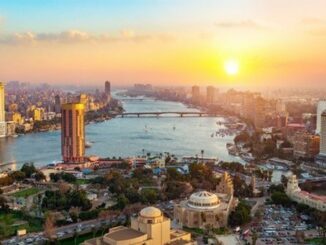
The Court of Cassation sentenced six young people to death and three others to life in prison on Wednesday for killing an enlisted police officer in Egypt’s northern city of Mansoura in February 2014. The ruling is final and cannot be appealed.
Policeman Abdallah Metwally was part of a protection unit for one of the judges, Hussein Qandil.
The defendants were convicted of premeditated murder, illegal arms possession and forming a terrorist cell with the intention to target security forces in Mansoura, according to lawyer Mohsen al-Bahnessy, reported Mada Masr.
Mansoura Criminal Court previously sentenced nine people to death, handed 12 defendants life sentences and gave several others 10 years in the same case, but on appeal the sentences were reduced. Two of the defendants previously sentenced to death were given life sentences on Wednesday, a third is at large, and four were acquitted.
The defendants with the harshest sentences were allegedly implicated in the murder of the policeman, while others with shorter prison terms were convicted of monitoring other police personnel in the area with the intention to harm them.
Many of the defendants confessed to the murder of the policeman under torture, Bahnessy explained. The defendants’ families corroborated this, adding that they were held in inhumane conditions in Mansoura prison, where they were denied access to medical treatment. A number of them were forcibly disappeared in March 2014, for periods that ranged from a week to several months.
One of the defendants, Bassem Mohsen, was missing for three months and was reportedly tortured in the notorious Al-Azouly prison. Three other defendants reportedly faced similar conditions in Al-Aqrab prison.
This is the third in a series of final rulings sentencing defendants to death since hundreds of Morsi supporters were handed death sentences after the former president’s ousting in 2013. Many of these death sentences were overturned on appeal, but two were upheld: A military court ruling against six defendants in the case of the Arab Sharkas cell in May 2015, and against Adel Habara, who was accused of killing 25 soldiers in North Sinai in 2014. Habara was executed in December 2016.
Details about the ‘Mansoura Policeman Murder’ case
It is case number 16850/2014 in front of the Mansoura Criminal Court, in which 24 people were accused of establishing and joining a group against the law; providing it with money and weapons; and murdering Sergeant Abdullah Metwally on February 28, 2014, for a ‘terrorist purpose’ as he was the house guard of one of the three judges in Mohamed Morsi’s trial. Nine people were sentenced to death on September 7th, 2015, and the case was appealed before the Court of Cassation, which upheld the death penalty for six defendants on June 7th, 2017.
* A note on the terrorism/illegal group charge: these charges were made in June 2014, before the announcement of listing the Muslim Brotherhood as a terrorist group in December 2014.
All the defendants in praesentia without exception were subjects of enforced disappearances in a detainment campaign that spanned Feb 28th till mid March, during and after which their families made official complaints to the prosecutor general. The family of one defendant, Basem Mohsen, were informed four months after his disappearance that he was in the Al-Azouly military prison through other inmates. It is also important to note, although the lawyers do not want to stress much on this point because of its current negative connotations, that the detainees are either members of Muslim Brotherhood families, or their college roommates.
The first time other family members saw three of those forcibly disappeared, Mahmoud Mamdouh Wahba, Khaled Askar, and Ahmed El Waleed El Shal – all three of whom are among those sentenced to death – was on a video broadcast on the Egyptian satellite channel ON TV, wherein they confessed to the collaborative murder of the guard.
The defendants later stated before the prosecutors that they were tortured to extract this false confession; Khaled Askar even removed his shirt in court to show the judge the torture marks on his body. All this is documented through the trial proceedings.
Furthermore, there is substantial doubt regarding the provision of a ‘fair’ trial. In fact, the case rests primarily on the recanted confession, along with the testimonies of state security members. As for the evidence, there are major concerns regarding its validity: the confiscated evidence consists of a rifle whose bullets do not match the ones in the victim, a sewage pipe, and a motorcycle, which the main defendant was allegedly driving as he shot the victim, with a different color than the one mentioned in the testimonies.
As for the forensic medicine reports, there are also lots of question marks. First, in order not to document the torture inflicted upon the defendants, the reports – requested by the court – registered the wounds but claimed they could not identify whether or not these wounds were recent. This bias against the defendants is aggravated by the inclusion of the year in which Ahmed El Waleed, the main defendant, acquired a previous bullet wound in 2013 – since it is difficult for the report to identify the exact year when the bullet was acquired, there are doubts that it recorded information obtained from the state security (including the year in which the main defendant was shot).
Regarding the main defendant, it is worth noting that he also underwent surgery that, also according to forensic medicine reports requested by the court at a different time, makes him unable to ride a motorcycle, let alone aim and shoot. Furthermore, another report that examined the victim’s wound angles stated that the killer must have been standing near the victim, and not passing by on a motorcycle, as it was alleged by the ‘witnesses.’
One final point, a witness (name in court proceedings paperwork pending) claimed he saw the murder take place in front of a factory. The defense insisted on examining the footage of the factory security camera, which, at the exact time and place of the testimony, showed no one.



